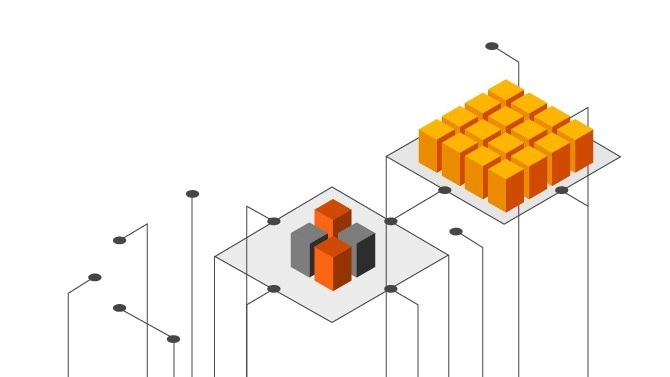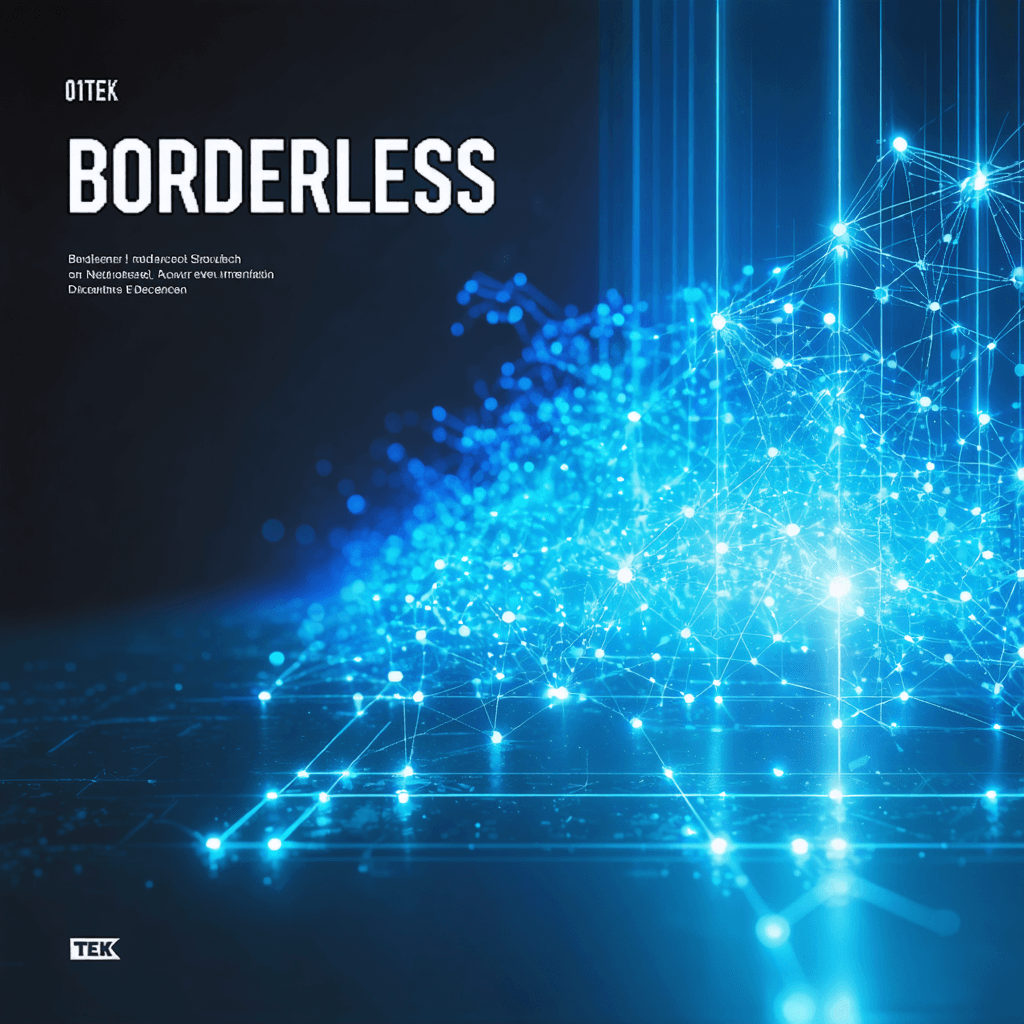إطلاق العنان لتقنية بلا حدود: كيف تقوم الشبكات اللامركزية بكسر الحواجز الرقمية
في عصر يشكّل فيه الترابط الرقمي حياتنا اليومية، تبرز الشبكات اللامركزية كمحفزات قوية لكسر الحواجز التقليدية في المشهد التكنولوجي. يعمل هذا التحول التغييري على إحداث ثورة في كيفية تفاعلنا وإجراء معاملاتنا ومشاركة المعلومات عبر النظام البيئي الرقمي العالمي.
تطور اللامركزية
تمثل الرحلة نحو الشبكات اللامركزية تحولاً جوهرياً عن الأنظمة المركزية التقليدية. اعتمدت البنية التحتية الرقمية التقليدية بشكل كبير على السلطات المركزية والوسطاء، مما أدى إلى اختناقات ونقاط فشل محتملة. توزّع شبكات اليوم اللامركزية التحكم وصنع القرار عبر شبكة واسعة من المشاركين، مما يعزز المرونة والشفافية.

كسر الحواجز الرقمية
1. حل الحدود الجغرافية
تقضي الشبكات اللامركزية بشكل فعال على القيود الجغرافية التي كانت تحد من التعاون والتجارة العالميين. من خلال تقنية البلوك تشين ومنصات الويب 3، يمكن للأفراد الآن المشاركة في الأسواق العالمية بغض النظر عن موقعهم، مما يخلق فرصًا غير مسبوقة للتفاعلات عبر الحدود.
2. الشمول المالي
أحد أهم تأثيرات الشبكات اللامركزية هو في القطاع المالي. تعمل الحلول القائمة على البلوك تشين على إحداث ثورة في المدفوعات عبر الحدود وخلق فرص جديدة للفئات غير المتعاملين مع البنوك وذوي الخدمات المصرفية المحدودة. وفقًا للتطورات الأخيرة في عام 2025، تعمل تقنية البلوك تشين على تبسيط المعاملات الدولية، مما يجعلها أسرع وأكثر فعالية من حيث التكلفة ومتاحة لجمهور أوسع.
3. سيادة البيانات
في عصر التحول الرقمي، أصبحت ملكية البيانات والخصوصية من أهم المخاوف. تعمل الشبكات اللامركزية على تمكين الأفراد بمزيد من التحكم في معلوماتهم الشخصية. تؤكد تقنيات الويب 3 على ملكية البيانات الشخصية، مما يسمح للمستخدمين بتحديد كيفية مشاركة بياناتهم وتحقيق الدخل منها.
الأساس التقني
بنية البلوك تشين التحتية
يكمن أساس الشبكات اللامركزية في تقنية البلوك تشين، والتي توفر:
- حفظ السجلات غير القابلة للتغيير
- معاملات شفافة
- بروتوكولات أمان محسّنة
- وظائف العقود الذكية
تكامل الويب 3
تم بناء أحدث نسخة من الإنترنت، الويب 3، على بروتوكولات لامركزية. اعتبارًا من عام 2025، تتضمن منصات الويب 3:
- التطبيقات اللامركزية (dApps)
- الرموز غير القابلة للاستبدال (NFTs)
- حلول التمويل اللامركزي (DeFi)
- شبكات بلوك تشين قابلة للتشغيل البيني
تطبيقات العالم الحقيقي
1. التمويل اللامركزي (DeFi)
تعمل منصات التمويل اللامركزي على إحداث ثورة في الخدمات المالية التقليدية من خلال تقديم:
- الإقراض من نظير إلى نظير
- صنع السوق الآلي
- فرص الزراعة للعائد
- البورصات اللامركزية
2. إدارة الهوية الرقمية
تعمل الشبكات اللامركزية على تغيير كيفية إدارة الهويات الرقمية والتحقق منها من خلال:
- حلول الهوية الذاتية السيادية
- بيانات الاعتماد القابلة للتحقق
- المصادقة التي تحافظ على الخصوصية
- قابلية نقل الهوية عبر المنصات
3. شفافية سلسلة التوريد
توفر حلول سلسلة التوريد القائمة على البلوك تشين:
- رؤية شاملة
- التتبع في الوقت الفعلي
- الامتثال التلقائي
- تقليل مخاطر التزييف
التغلب على التحديات
على الرغم من أن الشبكات اللامركزية توفر إمكانات هائلة، إلا أن هناك العديد من التحديات التي تتطلب الاهتمام:
- قابلية التوسع: تطبيق حلول يمكنها التعامل مع أحجام المعاملات المتزايدة دون المساس بالأداء.
- تجربة المستخدم: تبسيط الجوانب التقنية المعقدة لتعزيز التبني السائد.
- الامتثال التنظيمي: التنقل في الأطر التنظيمية المتطورة مع الحفاظ على مبادئ اللامركزية.
- كفاءة الطاقة: تطوير آليات إجماع مستدامة للحد من التأثير البيئي.
التوقعات المستقبلية
يبدو مستقبل الشبكات اللامركزية واعدًا، مع ظهور العديد من الاتجاهات:
- قابلية التشغيل البيني: اتصال محسّن بين شبكات البلوك تشين المختلفة
- حلول الطبقة الثانية: قابلية توسع محسّنة من خلال طبقات المعالجة الثانوية
- الاعتماد المؤسسي: زيادة تكامل الحلول اللامركزية في الصناعات التقليدية
- بلوك تشين أخضر: تطوير بروتوكولات مستدامة بيئيًا
التأثير على الابتكار العالمي
تعمل الشبكات اللامركزية على تحفيز الابتكار عبر القطاعات:
- الرعاية الصحية: إدارة بيانات المرضى بشكل آمن والتعاون البحثي
- التعليم: بيانات اعتماد قابلة للتحقق وفرص التعلم عبر الحدود
- الصناعات الإبداعية: نماذج جديدة لتحقيق الدخل للمبدعين والفنانين
- الحوكمة: أنظمة صنع القرار الشفافة والتشاركية
الطريق إلى الأمام
مع تقدمنا خلال عام 2025، تستمر الشبكات اللامركزية في التطور والنضج. أصبحت التكنولوجيا أكثر سهولة وفعالية وسهولة في الاستخدام، مما يمهد الطريق للتبني على نطاق واسع. تعمل المنظمات والأفراد الذين يتبنون هذه التقنيات اليوم على وضع أنفسهم في طليعة الثورة الرقمية.
هل أنت مستعد للتعمق في عالم التقنيات اللامركزية؟ استكشف دوراتنا ومواردنا الشاملة في 01TEK لإتقان المهارات اللازمة لمستقبل لامركزي. انضم إلى مجتمعنا من المبتكرين وكن جزءًا من الثورة التكنولوجية التي تعيد تشكيل عالمنا الرقمي.
المصادر: 1. رؤى PWC حول البلوك تشين 2. دورات الويب 3 لعام 2025 3. دليل المدفوعات عبر الحدود باستخدام البلوك تشين 4. ميزات وتطبيقات الويب 3 5. التحول في العصر الرقمي
It is not easy to find happiness in ourselves, and it is not possible to find it elsewhere.
Agnes Repplier



